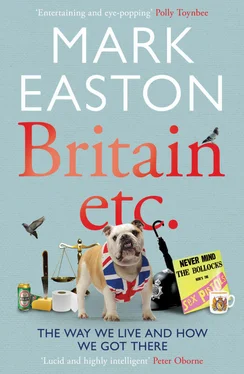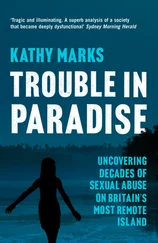Teenagers sought to overcome the demands of sleep; the Mod drug of choice was amphetamine, used to fuel all-night dances at clubs like The Twisted Wheel in Manchester. But they still had to go to work on Monday morning so, along with the uppers, were the downers, as a generation attempted to recalibrate their body clocks.
In the consumer revolution that followed, sleep came to be regarded as a commodity like any other. Science had begun to unlock its secrets: in 1971 the New Scientist magazine reported on the ‘trendy’ research being conducted by Ian Oswald at Edinburgh University — ‘sweeping away a lot of myths which for a long time surrounded sleep and dreaming’. The man who would become known as a founding father of sleep research had spent much of the 1960s unravelling the mysteries of dreams and the effects of sleeping tablets, slimming pills and recreational drugs.
Money soon began to pour into what was dubbed a new clinical discipline, much of it from pharmaceutical companies who were wide awake to the potential profits from sleep. Products promising users the power to defy nature, to control their sleeping and waking, became big business in a world encouraged to feel anxious about its hectic lifestyle. The scientific community, though, was torn: some believed the new designer drugs were an answer to the suffering associated with 24/7 demands; others feared corporate greed was driving a dishonest and dangerous pill-pushing racket.
Ian Oswald and colleagues of mine at the BBC’s Panorama programme found themselves caught up in the row amid reports that the sleeping pill Halcyon, made by the American pharmaceutical firm Upjohn, was addictive and linked to memory lapses. They suggested the drugs company had covered up and lied about evidence of side effects, accusations vigorously denied by the executives at Upjohn’s headquarters in Kalamazoo, Michigan.
It all ended in London’s High Court in May 1994, the culmination of a long-running libel trial. Justice Sir Anthony May ruled in favour of Upjohn but, illustrating the passions generated by the issue, both Ian Oswald and Upjohn physician Royston Drucker were also obliged to pay damages to each other for libellous remarks. The case exemplified the furious debate that had begun to rage over humankind’s quest to become the master rather than the servant of sleep.
There are now an estimated 13 million prescriptions for sleeping pills issued each year in Britain, as the nation looks to the medicine cabinet for help in dropping off. At the same time, sales of ‘energy drinks’ to keep people awake have been soaring. Analysts reckon Britain spends a billion pounds a year on cans and bottles fizzing with stimulants. Coffee is also a billion-pound-a-year product, with corporate cafe chains barging their way on to every high street for a slice of the action.
It has become relatively normal to begin the day with a jolting Americano and to close it with a dose of Zopiclone: from A to Z where once it was simply dawn ‘til dusk. This cocktail of tranquilisers and stimulants, however, has left Britain a restless place, nervous about messing up the balance between alertness and tiredness. To the rescue have come an army of sleep consultants, experts to advise us on ‘fatigue management solutions’.
The MetroNaps EnergyPod, for example, is marketed as the answer for stressed-out city executives who currently ‘seek rest in places not intended for it: at their desk, in a conference room, a parked car or even a bathroom’. Instead, they could rejuvenate with a power nap in a machine apparently based on years of research and thousands of design hours. Lie back on what looks like a dentist’s chair, your head enveloped by a huge dome, and let the soft lights and music guide you on a short round-trip to the unconscious world. The brainchild of a banker who said he kept finding colleagues asleep in lavatory cubicles and store cupboards, the pods have apparently been installed in a number of London city firms, bosses persuaded that the monthly rental is less than the increased productivity.
The phrase ‘power nap’ reinforces the idea that success comes with the ability to control sleep. Winston Churchill, John F. Kennedy, Margaret Thatcher, Ronald Reagan, Bill Clinton and Tony Blair were all power-nappers, we are told, insisting on a short and intense rest period in the afternoon that recharged their batteries and invigorated their minds. I once sat on a train with Pierre-Yves Gerbeau, the French businessman who had been asked by Tony Blair to rescue the Millennium Dome project. As the Eurostar sped through the Pas-de-Calais, his aides informed me that PY would now take a nap. With that, M. Gerbeau closed his eyes and sat trance-like in his seat. After precisely ten minutes he opened his eyes once more and continued the conversation, apparently refreshed. It was hard not to be impressed.
The French have had quite an influence on our thinking about sleep. The geophysicist Jean-Jacques d’Ortous de Mairan was the first to discover circadian rhythms in 1729. In the 1950s and 60s, the neurobiologist Michel Jouvet led the way on sleep research, organising the first international symposium on the subject in France in 1963. He is likely to be remembered, though, for events twenty-five years later when he was the director of a laboratory at the pharmaceutical firm Group Lafon. There he made a breakthrough hailed as a great French discovery, a drug that promised to give us greater mastery over sleep than ever before.
Professor Jouvet had adapted an anti-depressant to make a pill, he said, which did away with the need for rest. He took it himself to test its properties and claimed it made him super-productive without any apparent side effects. His baccalaureate students also tried the new drug and were said to have seen a marked improvement in their capacity for revision, able to stay awake for sixty hours at a stretch with little or no decline in their cognitive performance. What made Modafinil such an advance on previous stimulants, though, was that it caused virtually no noticeable rebound. Users didn’t need to make up for lost sleep.
The potential of the drug was quickly recognised, not least by the military. At an international defence meeting in Paris, Professor Jouvet told generals that Modafinil could keep an army on its feet and fighting for three days and nights with no major side effects. The Pentagon was all ears. A $3 billion programme to develop a ‘Metabolically Dominant Soldier’ was already investigating how to keep US troops in combat for long periods without sleep. It had, for instance, been researching how dolphins manage to send half of their brain to sleep at a time with the hope, presumably, that soldiers might learn to do the same. Now, it was suggested, the answer wasn’t in Flipper. It was in France.
British forces were equally intrigued. The Ministry of Defence paid the military technology company Qinetiq to investigate the potential of Modafinil, sold in the UK under the name Provigil. Large orders were placed for tablets just before the invasions of Afghanistan and Iraq in 2001 and 2002. The MoD denied the drugs were being tested on soldiers, but Qinetiq scientist Dr Anna Casey told a committee of MPs in 2005 that ‘one is always looking for something that would give military personnel an extra edge.’ Modafinil, she confirmed, had been ‘shown to enhance physical and mental performance’.
The official line from British defence chiefs was that the pills were purchased for legitimate clinical reasons, prescribed to soldiers suffering from narcolepsy or sleep apnoea, but word was spreading that scientists had come up with a wonder drug. High-powered city traders were among the first to bring supplies to the UK, eager to exploit a product that meant they could operate at full throttle on just a couple of hours’ sleep a night.
Читать дальше












